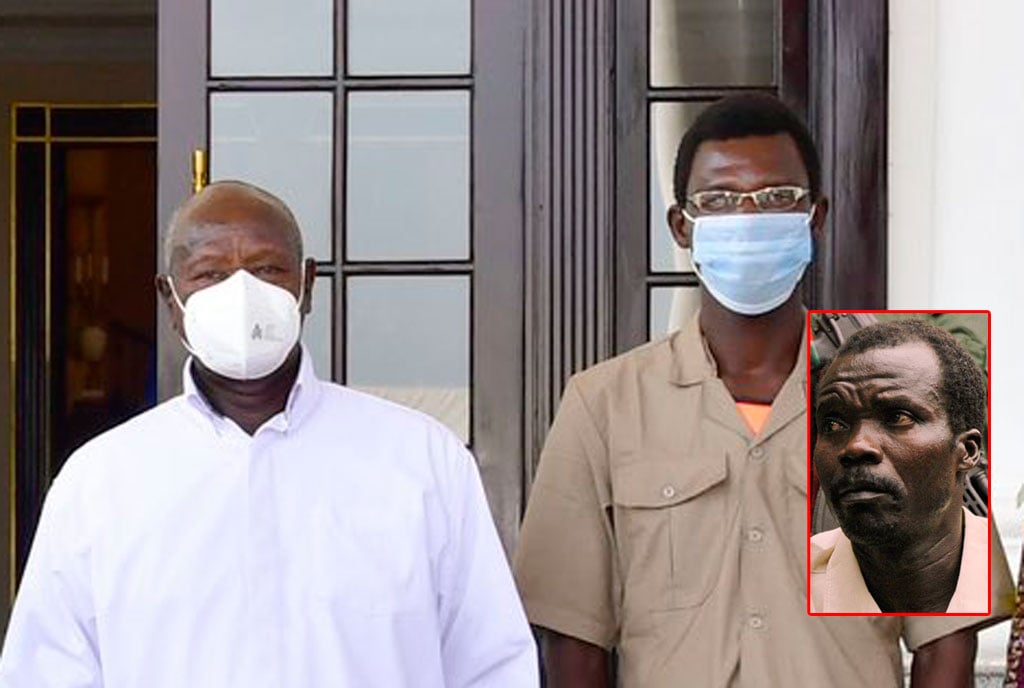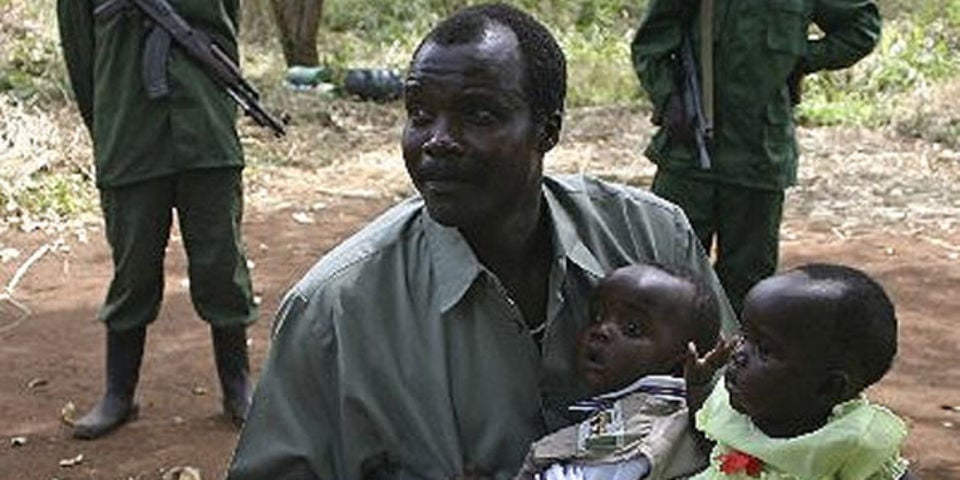Prime
How Kony family walked into Gen Museveni’s care

Photo taken on August 25, 2023 shows President Museveni at State House with Brig Ali Ssalongo Kony, one of the children of LRA rebel leader Joseph Kony (inset). PHOTO/HANDOUT
What you need to know:
- Mr Museveni also pledged to make the Kony family an example and a role model for others to emulate in terms of self-sufficiency and productive activities.
In the dead of the night of July 1, the Pageya Clan chief Yusuf Okwonga Adek received the most unlikely of guests at his home in For-god Village in Gulu City’s Bardege-Layibi Division.
It was 2am. Chief Adek was surprised, perhaps pleasantly but he panicked too, out of necessity. The visitors, who had surfaced at the ungodly hour in the For-god village were unexpected, among them, Ali Ssalongo Kony, the son of the wanted Lord’s Resistance Army (LRA) rebel leader Joseph Kony.
The others were his mother Selly, his wife and children.
They had been new arrivals in the country following their repnatriation from South Sudan. Here was a country, previously part of Sudan that under deposed leader Omar-el-Bashir bankrolled the LRA, which turned a mediator in the peace talks between the government of Uganda and the rebels.
A pact was reached in mid-2000, but Kony withheld his signature, citing fears he could be arrested after the International Criminal Court (ICC), which indicted him alongside his top lieutenants, issued a warrant for their arrest.
Rwot Adek was among the delegates to the peace talks and it was then, 18 years or so ago, that he and Kony’s family ever met.
A lot has since happened. Ugandan military’s Operation Lightning Thunder ended with Uganda People’s Defence Forces (UPDF) displaying Kony’s guitar and saucepans and jerrycans as catches from the rebels after flying jets to bomb and flatten the rebel base!
ICYMI: The end of Joseph Kony?
LRA fled Garamba Park in the Democratic Republic of Congo (DRC), and a regional counter-offensive supported in 2011 by American Special Forces did little to prevent LRA from spreading its signature brutality into the Central African Republic, Chad and South Sudan.
Kony, as ever eluded the various snares, and the official status is that his whereabouts are unknown.
Thus, when his ‘wife’, a son and daughter-in-law and grandchildren showed up unannounced at the gate of the place of abode of Rwot Adek in the dead of the night of July 1, the clan leader could not conceal his trepidation.

LRA leaders Caesar Acellam, Opok, Ocan Bunia, Okot Odhiambo and Joseph Kony in Garamba Forest during the peace talks in 2006. PHOTO/FILE
The guests who returned from South Sudan said they found their way to the clan chief’s home with pointers from volunteers they asked for directions because Rwot Adek’s name was all they could remember of persons they knew in their cradle land.
Three days after welcoming the team, Rwot Adek reached out to inform the government of their presence at his home, making clear he did not want to be unduly suspected of playing mischief.
State House then dispatched an officer to his home regarding the fate of Joseph Kony’s family members.
“I told the officer [about] the situation of the family members and how they needed to be supported since they had nowhere to go,” Rwot Adek told this publication in the first insights on how members of the family of a wanted warlord entered the halls of Uganda’s heavily-protected State House.
Following the conversations, emissaries worked out diplomatic, political and military channels, leading to Kony’s family landing an invitation to State House a month later, on August 24.
Everything was hush-hush until courtiers posted on President Museveni’s social media pages about the meeting.
“They informed me,” Mr Museveni was quoted to have said of his meeting with Kony’s bloodline, “of their desire to [be] rehabilitate[d] and to support the rest of the family to engage in productive activities like farming. This is a very welcome idea which we shall support”.
“We will help them (Kony family) to set up a commercial farm so that they work together as a company and then share the profits. All the children and the ‘wives’ should be shareholders. This is what I have been telling all Ugandans,” the President said, adding, “So, the Kony family will be an example and a role model for other people to see and emulate.”
Offering snippets of the behind-the-scenes conversations, Rwot Adek said he told Mr Museveni that Kony’s children are homeless, have no attachment to the indigenous community, and their father is now “weak and helpless … and unable to fight”.
“Because the President is the head of State, the state should help support these children [of Kony],” Adek told this newspaper of the delicate wordings that earned presidential pledges for support.



